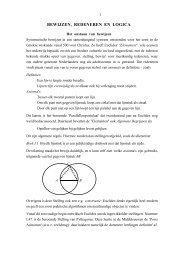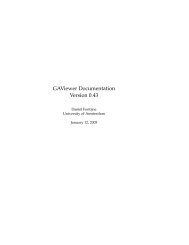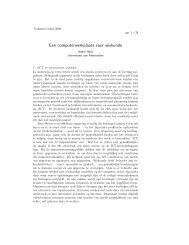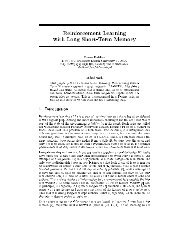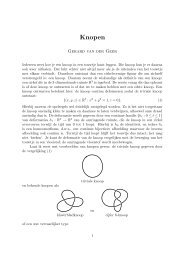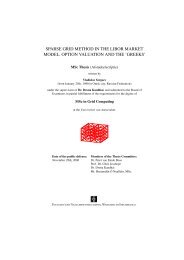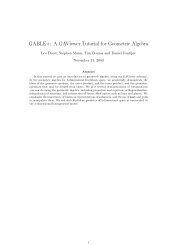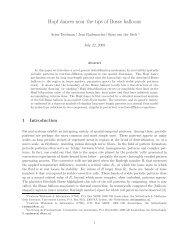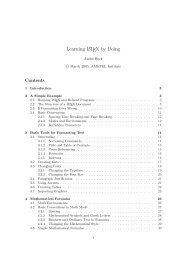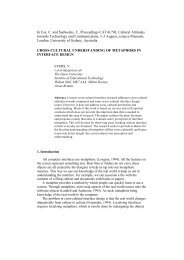The role of metacognitive skills in learning to solve problems
The role of metacognitive skills in learning to solve problems
The role of metacognitive skills in learning to solve problems
You also want an ePaper? Increase the reach of your titles
YUMPU automatically turns print PDFs into web optimized ePapers that Google loves.
Chapter 8<br />
SUMMARY<br />
In the world <strong>of</strong> education, the currently prevail<strong>in</strong>g paradigm is constructivism.<br />
This learn<strong>in</strong>g theory states that knowledge construction is<br />
an active process <strong>in</strong> which self-regulation and reflection are important.<br />
Games and simulations fit well with this paradigm because players are<br />
able <strong>to</strong> explore and experiment <strong>in</strong> a realistic sett<strong>in</strong>g. Several empirical<br />
studies however <strong>in</strong>dicate that learn<strong>in</strong>g is not optimal <strong>in</strong> such environments.<br />
This ma<strong>in</strong>ly appears <strong>to</strong> be due <strong>to</strong> the fact that learners are not<br />
sufficiently guided <strong>in</strong> their learn<strong>in</strong>g process. <strong>The</strong> question is what k<strong>in</strong>d<br />
<strong>of</strong> support one could add <strong>to</strong> a constructivist environment, that focuses<br />
on learn<strong>in</strong>g <strong>to</strong> <strong>solve</strong> <strong>problems</strong>, <strong>to</strong> make learn<strong>in</strong>g more effective. It is<br />
proposed <strong>to</strong> use a systematic approach <strong>to</strong> problem solv<strong>in</strong>g <strong>in</strong> the form <strong>of</strong><br />
a compiled task model. Research has shown that the <strong>in</strong>clusion <strong>of</strong> such a<br />
task model could enhance knowledge acquisition and regulation <strong>of</strong> learn<strong>in</strong>g.<br />
<strong>The</strong> ma<strong>in</strong> aim <strong>of</strong> this research project is <strong>to</strong> <strong>in</strong>vestigate the <strong>role</strong> <strong>of</strong><br />
metacognition <strong>in</strong> learn<strong>in</strong>g <strong>to</strong> <strong>solve</strong> <strong>problems</strong> <strong>in</strong> constructivist learn<strong>in</strong>g<br />
environments.<br />
In chapter 2 the theoretical foundation is described that underp<strong>in</strong>s the<br />
empirical studies <strong>of</strong> this research project. It concludes with a theoretical<br />
model that predicts how learn<strong>in</strong>g <strong>to</strong> <strong>solve</strong> <strong>problems</strong> occurs.<br />
In the theoretical model, three levels are dist<strong>in</strong>guished. <strong>The</strong>se are the<br />
object-, task- and meta-level. <strong>The</strong> object-level is doma<strong>in</strong>-dependent. It<br />
consists <strong>of</strong> doma<strong>in</strong>-specific knowledge and cognitive activities related <strong>to</strong><br />
it. A learner who is not aware <strong>of</strong> higher levels <strong>in</strong> the problem solv<strong>in</strong>g<br />
process than the object-level only has a limited control over the reason<strong>in</strong>g<br />
process. When a learner is aware <strong>of</strong> higher levels, cognitive activities<br />
can be ordered <strong>in</strong> such a way that they represent a systematic approach<br />
163





